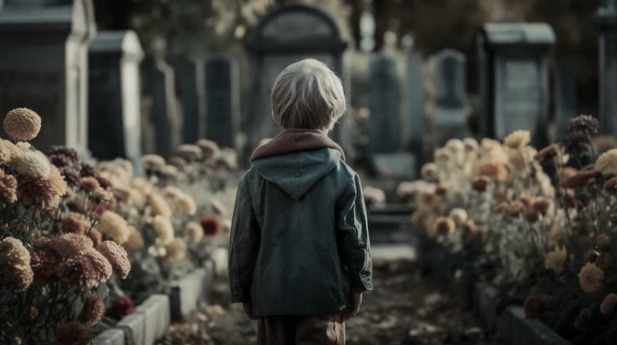The invisible duel: Brothers who lose Brothers
In the midst of our own grief, it is essential to remember that siblings are also suffering significant loss. The invisible grief of siblings who lose siblings can have lasting consequences if not properly addressed.
Kids UP
1/29/20243 min read


The loss of a child is a devastating experience for parents and caregivers. The grieving process can plunge us into deep pain that affects all aspects of our lives. However, in the midst of our own grief, we are often unaware that our other children are also suffering a significant loss: that of a sibling.
The grief of siblings who lose siblings is an invisible pain, since parents, immersed in their own suffering, can overlook the suffering of their other children. It is essential to understand the consequences of this loss and be able to accompany our children in the midst of their pain, even when the grief of a child has shaken our lives to the deepest roots.
The impact of grief on siblings
The loss of a sibling is a traumatic experience for any child or adolescent. Siblings share a unique and special connection, and when one of them passes away, an irreplaceable bond is broken. Sibling grief can manifest itself in different ways, depending on the age and personality of each one.
Some siblings may experience deep sadness and crying, while others may show an apparent lack of emotional reaction. It is important to remember that each person grieves differently and that there is no "right" way to process it. However, there are some common signs that may indicate that a sibling is suffering in silence:
Changes in behavior, such as irritability or aggression
Social isolation and lack of interest in activities you previously enjoyed
Academic difficulties or decreased school performance
Sleep problems, nightmares or insomnia
Expressions of guilt or feelings of responsibility for the brother's death
These signs may be indicative that the sibling is struggling to process her grief and needs emotional support and understanding from parents and caregivers.
The importance of open communication
In the midst of their own grief, it can be difficult for parents and caregivers to recognize and address their siblings' pain. However, open and honest communication is essential to help them express their feelings and process their loss.
It is important to create a safe space where siblings feel comfortable sharing their emotions. Encouraging open communication involves:
Active listening: Pay attention to what the brother has to say without interruptions or judgments.
Validate their feelings: Recognize and accept the sibling's emotions, even if they are different from your own.
Promote emotional expression: Encourage the sibling to talk about her memories, feelings, and concerns.
Provide emotional support: Be present and available to the sibling, offering comfort and comfort when needed.
Open communication also means being honest with siblings about the loss and the reality of grief. Although it may be painful, it is important not to hide the truth or try to protect siblings from reality. Explaining to them in an appropriate and understandable way what has happened can help them process the loss and understand their own feelings.
Routine and stability
In the midst of the emotional chaos that accompanies grief, maintaining a routine and providing stability can be a huge help for siblings who have lost a sibling. Routine gives them a sense of security and normality at a time when their world has been shaken.
It is important to continue with daily activities and responsibilities, such as school, work, and household chores. This does not mean that we should ignore the pain or act as if nothing has happened, but rather that we should find a balance between grief and everyday life.
Additionally, it is essential to provide siblings with the necessary support so they can continue their extracurricular activities and maintain their friendships. These activities can serve as a healthy outlet to channel your emotions and distract yourself from pain.
Seek professional help if necessary
Sometimes, siblings' grief can be so overwhelming that they need professional help to process it. If we notice that the sibling is struggling to function in daily life or that her grief is intensifying over time, it may be necessary to seek help from a therapist who specializes in childhood grief.
A therapist can provide a safe space where the brother can explore and express her emotions without judgment. She can also teach them tools and strategies.
